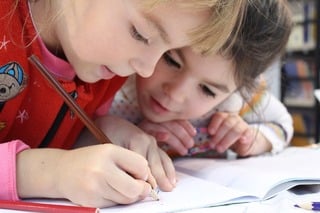Building Foundations for Literacy: Effective Strategies in Early Childhood Education

Language and literacy development are crucial aspects of high-quality early childhood education. When children acquire emergent literacy skills, they are more likely to become proficient readers and writers as they grow older.
Early #childhood educators play a crucial role in facilitating children's literacy development by integrating effective literacy activities into their classrooms. By doing so, they help establish a solid foundation for successful literacy skills in children.
Emergent literacy is the term used to describe the reading and writing experiences of young children before they learn to read and write conventionally. It is a period of time when children are developing the skills, knowledge, and attitudes that are necessary for literacy. Emergent literacy begins at birth and continues through the preschool years.
There are five key components of emergent literacy:
- Oral speech: Children learn to speak and understand language long before they learn to read and write. This foundation in oral language is essential for literacy development.
- Phonological awareness: This is the awareness of the sounds of language and how they work together to form words. Children with strong phonological awareness are better able to decode words when they start to read.
- Knowledge about books: This includes understanding the conventions of print, such as how books are organized, how to turn pages, and how to follow the story. Children also learn about different types of books, such as picture books, storybooks, and nonfiction books.
- Letter knowledge: This is the ability to recognize and name letters of the alphabet. Children who know their letters are better able to learn to read words.
- Print awareness concepts: This includes understanding the concepts of print, such as the difference between letters and words, the direction of print, and the function of punctuation marks.
Emergent literacy is a critical period for learning, and it is important to provide children with opportunities to develop these skills from a young age. Parents, caregivers, and teachers can all play a role in supporting emergent literacy by reading to children, talking to them about books, and providing them with opportunities to write and draw.
Below are some helpful strategies to use in the classroom to support children's emergent literacy.
- The "Stop, Read, Go Vocabulary Box" is a useful tool for promoting emergent literacy. It involves engaging children in activities such as sorting and matching objects with their corresponding words, helping them develop vocabulary and language skills.
- Interactive read-aloud sessions are another effective strategy to support emergent literacy in children. By reading aloud and engaging children in discussions about the story, educators enhance language development, expand vocabulary, and foster comprehension skills.
- Implementing reading buddies is an impactful method to encourage emergent literacy. Pairing children with a peer or an older student enables them to engage in shared reading experiences, boosting their motivation, confidence, and language skills.
- Labeling objects in the #classroom_environment is a practical approach to support emergent literacy. By affixing labels with words on items, children gradually recognize and associate the written words with the objects they refer to, enhancing their letter-sound knowledge.
- Utilizing Books on Tape is an engaging way to promote emergent literacy. By listening to stories being read aloud, children develop listening skills, improve their understanding of story structure, and increase their exposure to vocabulary and language patterns.
To learn more register for ChildCareEd's course "Classroom Tools for Emergent Literacy". This training emphasizes the importance of incorporating these strategies and materials to effectively support emergent literacy in children. By doing so, early childhood educators can lay the groundwork for successful and lifelong literacy development in their students.
Latest Jobs
- Supporting Families and Caregivers in Language and Literacy
- Building Vocabulary
- Assessment of Language and Literacy Skills
- Building Bridges for Dual Language Learners
- CDA Bridge Bundle: Infant/Toddler without Portfolio Review
- Language Development in School Age
- Letter & Number Planning in Child Care
- Classroom Tools for Emergent Literacy
- Language Development in Early Childhood
- Communication Skills in Child Care
- Early literacy at home: reading tips for busy parents
- Building Foundations for Literacy: Effective Strategies in Early Childhood Education
- Celebrating National Reading Month
- The Power of Play: Unleashing Potential in Early Childhood Education
- Technology Integration in the Early Childhood Education Classroom
- Building Social Foundations
- Conflict in Early Childhood Education Classrooms: Understanding, Managing, and Learning
- Shaping Futures with Early Childhood Education Training
- The Benefits of Early Childhood Education: Why Starting Early Matters
- The ABCs of ECE: Why Childcare Education Courses Are the Ultimate Parenting Hack
- How to Get a Free Early Childhood Education Training
- Where to Find the Best Early Childhood Education Courses
- Introductory Childcare Courses With Certificates to Get You Started
- How can I support children’s language and literacy development?
- Why Emotional Literacy Is the New Literacy
- Early Childhood Education